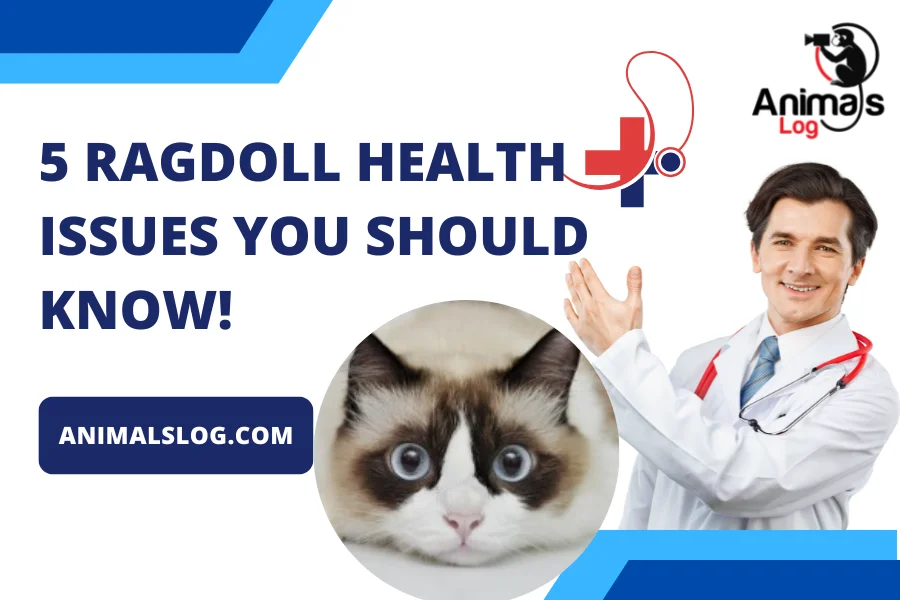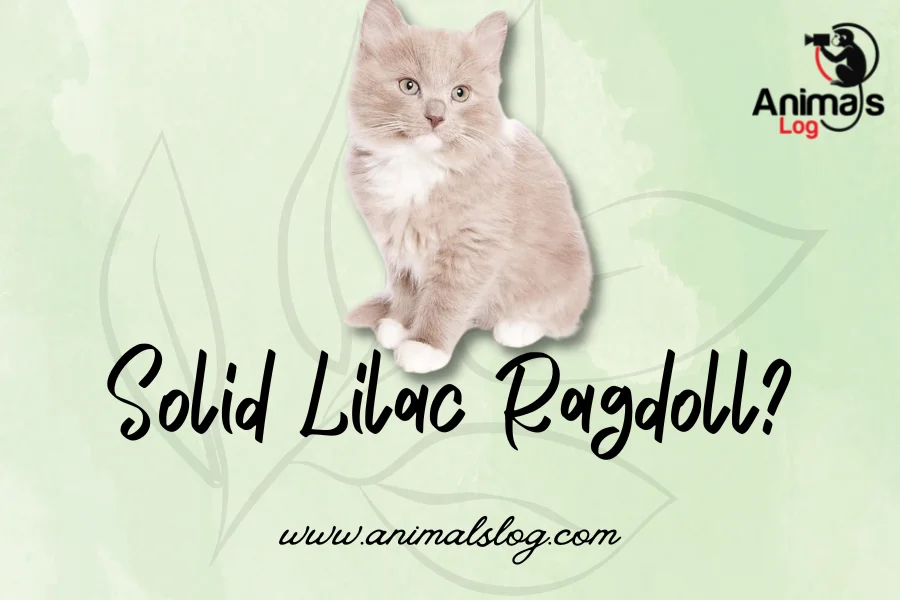Ragdoll cats have gained enormous popularity as pets in recent years, partly due to their extraordinary visual beauty and calm demeanor. With his stunning blue eyes, heavenly face, smooth fur, and curved physique, the Ragdoll cat resembles a real stuffed toy. Due to ragdoll health issues, you can quickly lose this magically gifted beast.
Because they are devoted and friendly, ragdoll cats form stronger relationships with their caretakers, which is essential for their welfare and survival. The Ragdoll is susceptible to some illnesses and hereditary problems while having a typically healthy physique. Ragdoll cats can be more vulnerable to ragdoll health issues than other cat species. It is a wise thing to educate yourself on these attractive and amiable ragdoll health issues. Therefore in this article today, we will learn more about ragdoll health issues and how to treat them.
5 Ragdoll Health Issues:
Ragdoll cats inherent qualities exposed them to the risk of many health issues. They are fluffy, which makes them prone to obesity and numerous heart diseases attached to them. Some of the ragdoll health issues are discussed below.
Hypertrophic Cardiomyopathy (HCM)

One of the most common ragdoll hereditary problems is Hypertrophic Cardiomyopathy (HCM). All cats can have this genetic illness, but studies have revealed that Ragdoll cats sadly have a higher prevalence than other breeds because of a variation in the MYBPC3 gene. The Maine Coon cat also possesses this trait.
It is characterized by the left ventricle’s myocardial mass swelling, which causes the capacity of the ventricular chamber to shrink. The feline’s heart becomes too large, making it difficult to efficiently pump blood to the other parts of the ragdoll cat’s body. It is possible that problems from poor circulation will manifest, including thrombosis.
Coughing, shortness of breath, and quick weight increase are all signs of HCM. HCM cannot be cured, although there are treatments that can be used. The best way to treat it is to prevent it by regularly going to the vet.
Obesity

Obesity is another one of the ragdoll health issues that ragdoll cats are prone to. Ragdoll cats are renowned for being docile and leading reasonably placid lives. Although they are typically less energetic than other cat species, they require physical activity and engagement. With a lack of proper exercise, daily your cat might become obese.
Diabetes, musculoskeletal, and respiratory issues are just a few ragdoll health issues that obesity can cause. Since ragdoll cats prefer to cuddle on their owners’ laps over climbing cat trees, it makes sense that this species is prone to obesity.
Because of this, ragdoll cat guardians should push their ragdoll cats to exercise, play games, and frequently engage in other stimulating exercises in addition to providing a healthy, nutritious diet. Include playing with cat toys and training a part of your ragdoll cat’s daily routine. This will stimulate your cat’s physical health and their natural predatory instincts.
Ragdoll Polycystic Kidney Disease (PKD)
Genetic polycystic kidney disease is most frequently found in Persian and shorthair cats, although it can also be one of ragdoll health issues. Due to this deadly hereditary condition, multiple tumors and fluid-filled pockets are present in the muscles of the feline kidneys.
Puking, weight loss, increased urination, tiredness, and poor general fitness are the most common signs. A special diet and drugs can halt the development of polycystic kidney disease, which cannot be cured. Early detection, primarily by yearly blood and urine testing, enables quick illness management.
It is essential to stop PKD from spreading. One of the most important prophylactic measures to prevent the disease’s spread is castrating or sterilizing cats with polycystic kidney disease.
Ragdoll Urinary Tract Infection (UTI)
One of the most prevalent ailments affecting Ragdoll cats is urinary tract ragdoll health issues. It results in fever, painful urination, and bloody urine. Any portion of the urinary system, including the renal pelvis, urethra, bladder, and even the kidneys, may be impacted by this. However, a few broad symptoms could point to a urinary tract issue.
Constantly wanting to urinate but finding it difficult to do so, intense or frequent licking of the genitalia, discomfort when peeing, struggling to urinate, blood in urine, and urinary incontinence are just a few symptoms of ragdoll toilet problems. Antibiotics can be used to treat UTIs, but it is critical to get them identified and handled as soon as possible.
Allergies

Similar to other animals, allergies are prevalent in ragdoll health issues. Ragdolls develop allergies due to seasonal changes, dietary or shampoo changes, and habitat changes. Things like dirt, mold, and even grass can bring allergies related to the environment. Food intolerances can show themselves in various ways, such as nausea, itching, or diarrhea.
Generally speaking, it is wise to talk with your veterinarian if you have any uncertainty regarding allergens, no matter how little or severe. In addition, it is advised that you regularly check on your ragdoll cat and give it proper grooming to prevent allergic responses in your cat.
FAQs On Ragdoll Health Issues
What is the average lifespan of a Ragdoll cat?
The average lifespan of a healthy cat with a well-balanced diet, without any ragdoll health issues, is 18 to 25 years. If your cat suffers from any ragdoll health issues, lifespans may reduce.
How do I keep my Ragdoll cat healthy?
To keep a ragdoll healthy, ensure you give them a balanced diet of dry and wet food. It should be provided with more food than just sufficient in its growing phase. Do not overfeed them and provide them with daily exercise and training sessions.
What illnesses are Ragdoll cats prone to?
Ragdoll health issues ragdoll cats are prone to are Hypertrophic Cardiomyopathy (HCM), Ragdoll Polycystic Kidney Disease (PKD), infections, and allergies.
What are some health issues from ragdoll cat breeding?
Ragdoll cat breeding can cause these diseases in a ragdoll cat progeny:
– HCM
– Gum Diseases
– Obesity
– Digestive issues
Can ragdoll cats spread disease in humans?
Although diseases specific to ragdoll cats will not affect humans, ragdoll cats may carry germs and bacteria that might trigger infections and allergies in humans.
Final Thoughts:
With this, we have come to the end of ragdoll health issues. Ragdoll cats are prone to many diseases, but the risks of acquiring these diseases are negligible with proper care and nutrition. Ensure that you are giving them physical exercise and training. Along with that, visit the vet regularly, groom them and go for regular check-ups to ensure they have a healthy, long life.







